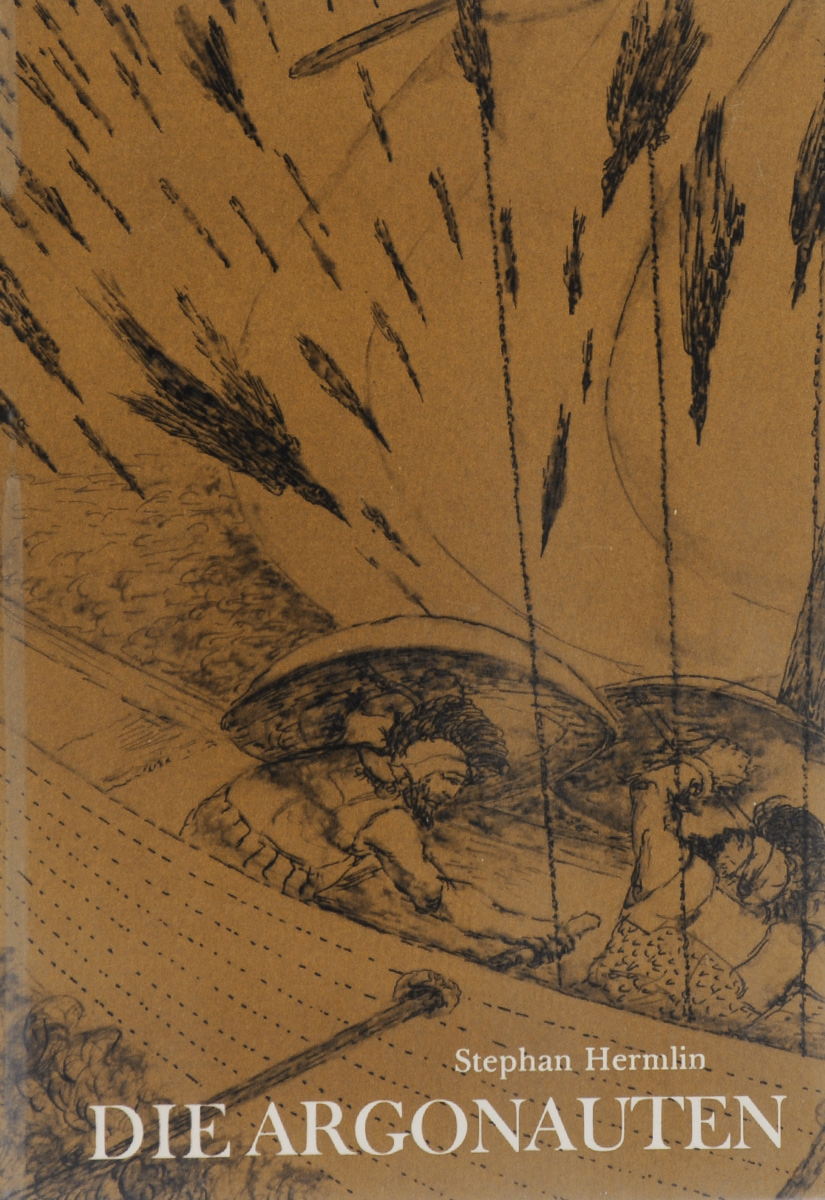Книга: Stephan Hermlin «Die Argonauten»

|
Год издания не указан. "Den ganzen Tag hindurch ruderten sie unter einem strahlenden Himmel uber ein dunkelblaues, mit weibem Schaum gekrontes Meer. Am nachsten Morgen erblickten sie weit vor sich die Gipfel und Schneefelder des Kaukasus, der sich uber dem Land Kolchis erhebt." Unendliche Muhen liegen hinter den Argonauten, die auf brachen, das Goldene Vlies zu holen. Mancherlei Bedrangnis und todliche Gefahren liegen noch vor ihnen. Stephan Hermlin hat die abenteuerlichen Schicksale der beruhmten Seefahrer aus dem antiken Griechenland fur unsere jungen Leser erzahlt. Издательство: "Der Kinderbuchverlag" (2015) Формат: 165x240, 88 стр.
Купить за 172 руб на Озоне |
Stephan Hermlin
Stephan Hermlin (
Life
Hermlin was born in 1915 in
In December of 1962 Hermlin joined the initiators of a group dedicated to the reading of young poets at the East German
After
Awards
*1948 Heinrich Heine Award, awarded by the Schutzverband Deutscher Autoren (English: Association of German Authors)
*1950 National Award, awarded by the East German government, for the Mansfeld Speech
*1954 National Award, awarded by the East German government, for work on a documentary about
*1958 F.C. Weiskopf Award
*1972 Heinrich Heine Award, awarded by the East German Cultural Ministry
*1975 National Award, awarded by the East German government
External links
de icon [http://www.hermlin.de Hermlin's official biography]
Источник: Stephan Hermlin
Другие книги схожей тематики:
| Автор | Книга | Описание | Год | Цена | Тип книги |
|---|---|---|---|---|---|
| Stephan Hermlin | Die Argonauten | Год издания не указан. "Den ganzen Tag hindurch ruderten sie unter einem strahlenden Himmel uber ein dunkelblaues, mit weibem Schaum gekrontes Meer. Am nachsten Morgen erblickten… — Der Kinderbuchverlag, (формат: 165x240, 88 стр.) Подробнее... | 2015 | 172 | бумажная книга |
См. также в других словарях:
Die Argonauten — Der Begriff Argonaut, Argonaute oder Argonauten (griechisch: Αργοναύτης) bezeichnet: die Helden der griechischen Argonautensage, die auf dem Schiff Argo segelten Argonauten (Kopffüßer), eine Weichtier Gattung, auch Papierboote genannt Die… … Deutsch Wikipedia
Die Argonauten (Zeitschrift) — Die Argonauten. Eine Monatsschrift Beschreibung Literaturzeitschrift Sprache deutsch Verlag Richard Weissbach Verlag E … Deutsch Wikipedia
Die Argonauten — см. Аргонавты … Энциклопедический словарь экспрессионизма
Jason und die Argonauten — Filmdaten Deutscher Titel Jason und die Argonauten Originaltitel Jason and the Argonauts … Deutsch Wikipedia
Argonauten — (griechisch: Αργοναύτης ‚Schnellfahrer‘) sind: die Helden der griechischen Argonautensage, die auf dem Schiff Argo segelten eine Familie und Gattung innerhalb der Kopffüßer, siehe Papierboote Ferner stehen Argonaut für: USS Argonaut, ein U Boot… … Deutsch Wikipedia
Argonauten — Argonauten, griechisch Argonautai, griechischer Mythos: die griechischem Heroen (genannt werden u. a. die Dioskuren, Herakles, Lynkeus, Kalais und Zetes, Meleagros, Peleus, Theseus, Orpheus), die auf dem Schiff Argo unter Iasons … Universal-Lexikon
